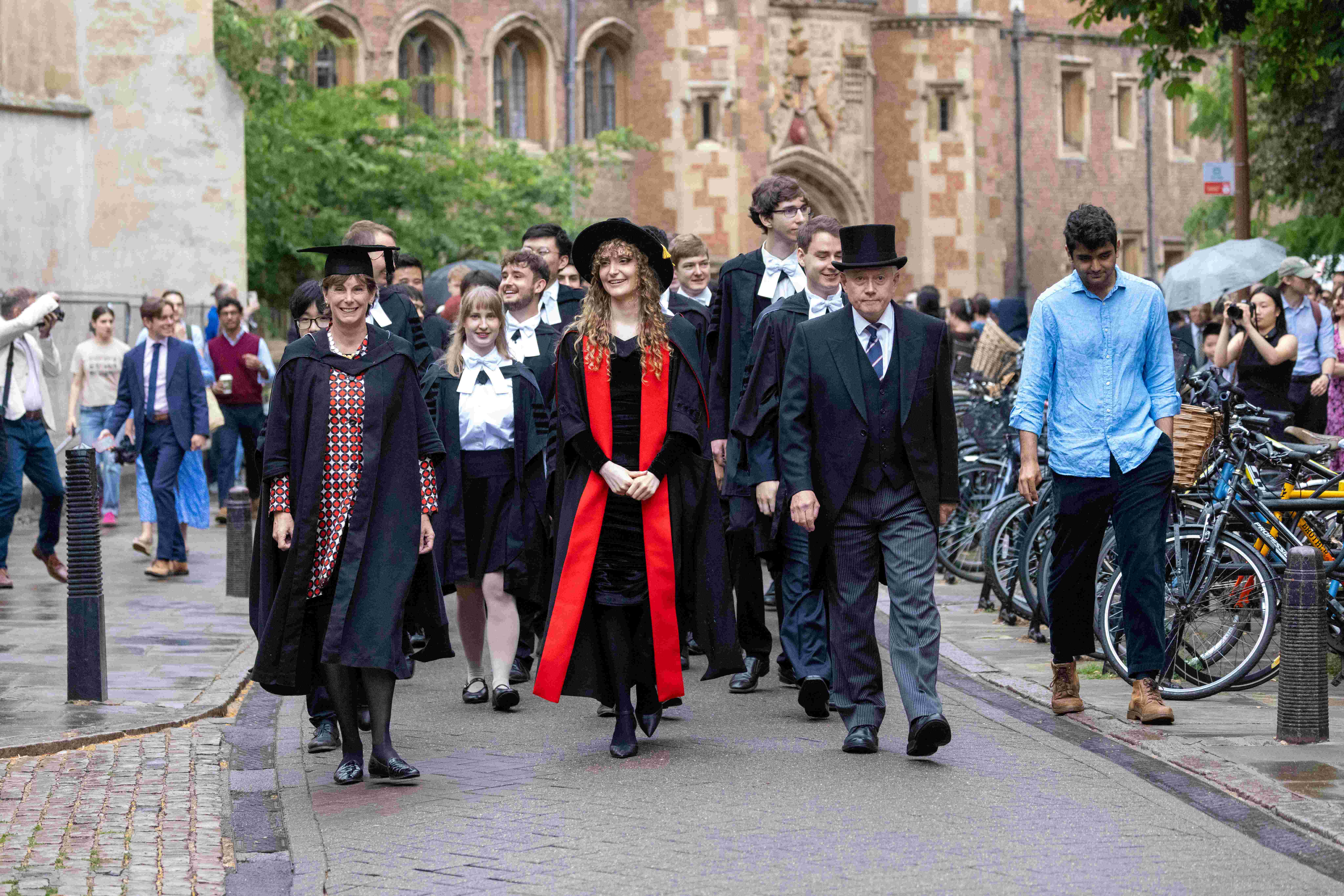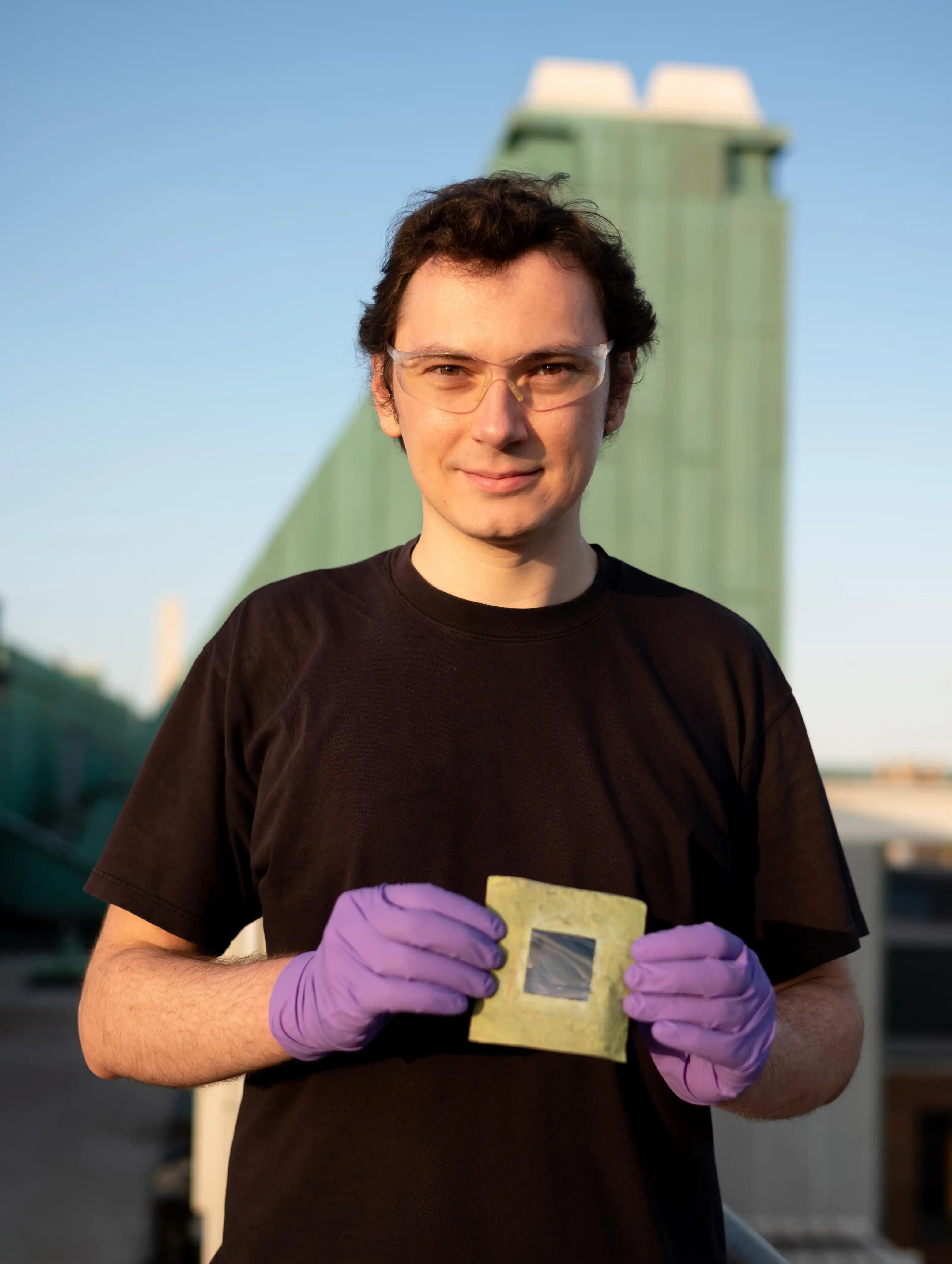
From a Bletchley Park code-breaker to Nobel Prize-winners and the inventor of the phrase ‘Big Bang’, Research Fellows of St John’s have made remarkable contributions to the world.
Now applications are invited for the 2026 Research Fellowship awards.
Up to four Research Fellowships will be awarded in this competition. Applicants should have submitted their PhD after 1 October 2024, or be on track to have submitted their PhD by 1 October 2026.
Heather Hancock, Master of St John’s, said: “St John’s is a brilliant place to progress a research career, truly immersed in an interdisciplinary community whose interests range from discovering new cancer treatments, and advancing quantum computing, to evidencing the impact of social media on children’s mental health.
“These prestigious awards offer a rare opportunity to devote yourself to independent research in a stimulating and supportive academic environment. We place great importance on the intellectual contribution our Research Fellows make to St John’s, and on creating the conditions for them to accelerate their progress towards outstanding academic careers.”
Feedback from our current Research Fellows highlights the exceptional opportunity to devote meaningful time to research, supported by a comprehensive package that includes generous practical support, an intellectually rich and socially engaging College community, and full participation in academic life at St John’s.
Mrs Hancock added: “Our Research Fellows organise lecture series, connect with alumni and students, help to foster an active social life, are integral to sport, music and other cultural activities, and sit on appointment panels.
“They are able to be devoted to research while taking advantage of opportunities to gain experience in strategic and business matters, which can be genuine differentiators when it comes to future steps on the career ladder.”

“The level of intellectual, social and practical support that St John’s offers Research Fellows is profoundly special”
“Research Fellows are invited to participate in every aspect of College life and I have had some of the most exciting discussions and exchanges with colleagues both within and beyond my field at St John’s”
Research Fellows at St John’s College are at the cutting-edge of science, technology, arts and humanities, and use their career-defining work to grow knowledge, improve wellbeing, and help to create a better world.
Current and recent Research Fellows include:
“Research Fellows have the immense privilege of being able to devote the vast majority of time to their research, and the level of engagement they are able to have with important research questions within their field is particularly high”
“The long length of the Research Fellowship is extremely appealing, and signals a genuine commitment to supporting the development of junior researchers”
.webp)
More information about our College and current Research Fellows can be found in our Research section.
We accept applications from a graduate of any university within or outside the United Kingdom.
In this year’s competition we welcome applications for research in all STEM subjects and in the following arts/humanities disciplines: Anthropology, Architecture, Modern and Medieval Languages (French, German, Italian, Spanish, Russian, Portuguese), Classics, Education, History, History and Philosophy of Science, History of Art, Theology, Religion and Philosophy of Religion, Land Economy, and Philosophy.
Our Research Fellowship awards are for early-career academics. Successful candidates will normally be either postdoctoral researchers who have recently submitted their PhD, or graduate students in the latter stages of research leading to a PhD.
Candidates should have either:
1. Submitted their PhD after 1 October 2024
Or
2. Be on track to have submitted their PhD by 1 October 2026.
Candidates holding a fellowship or other postdoctoral stipend (for example, awarded by a Research Council or other similar body) may apply, noting that any stipend or other funding received will be deducted from the Research Fellowship award.
Holders of a Fellowship at a Cambridge college may not apply. Candidates who accept a Fellowship from another Cambridge college will be deemed to have withdrawn from St John’s College Research Fellowship competition.
We typically receive around 900 eligible applications for Research Fellowship awards.
The four-year award offers a research stipend starting at £33,482 pa with an annual uplift, and award-holders are elected to a Research Fellowship for this period.
Award-holders are permitted to receive additional pay for up to six hours’ College or University teaching a week during term time.
Research Fellows benefit from up to £10,000 in additional grants over their four-year tenure. These grants support the costs of academic materials, travel expenses, computer equipment, books and costs relating to organising a conference or workshop in St John’s.
Fellowships are held on condition of residence within the University of Cambridge, ie within 20 miles of the centre of Cambridge. Research Fellows can choose to live in College in single residential accommodation, with charges applying for services and supplies.
Research Fellows who live outside College, including those who live with their partner/family, are eligible for a housing allowance worth up to £35,760 over their four-year tenure. This allowance is paid monthly and is capped at 50 per cent of rent paid. Research Fellows living outside St John’s will have an office in College.

“The very generous housing allowance and food provision make this Research Fellowship appealing to those who really have to consider the financial viability of continuing research”
Research Fellows are also entitled to take one meal each day in College, at College expense.
Subject to circumstances, we will consider:
1. a deferral for up to one year before the Research Fellowship award and associated Fellowship commences
2. periods of working away from Cambridge for the purposes of research for up to one year
3. a period undertaking a remunerated academic position that contributes to professional development (eg a temporary teaching position) of up to one year, during which the award-holder will forgo the College stipend and relevant benefits.
The 2026 St John’s College Research Fellowships competition runs from 30 July to 18 September 2025.
Your application must be submitted online by 2pm BST on 18 September 2025. Referees will have until 2pm BST on 23 September to complete your references.
You can apply before getting all three references, but your application will be considered incomplete if the references are not added by the reference deadline. It is your responsibility to ensure that referees submit their references in time.
No interviews are held. Rigorous assessment of submitted written work, previous research achievements and research intentions are of primary importance.
St John’s College policies are fully inclusive, regardless of age, disability, sex, sexual orientation, pregnancy and maternity, race, religion or belief, gender identity or reassignment, or relationship status.
The College is unable to advise or assist individual candidates on any matters concerning eligibility or the content of their applications.
For technical enquiries or difficulties accessing the application site, email or call +44 1223 338 609.